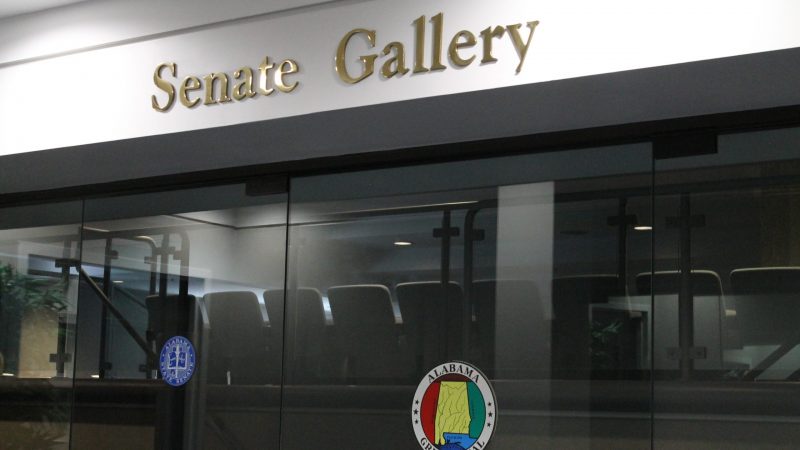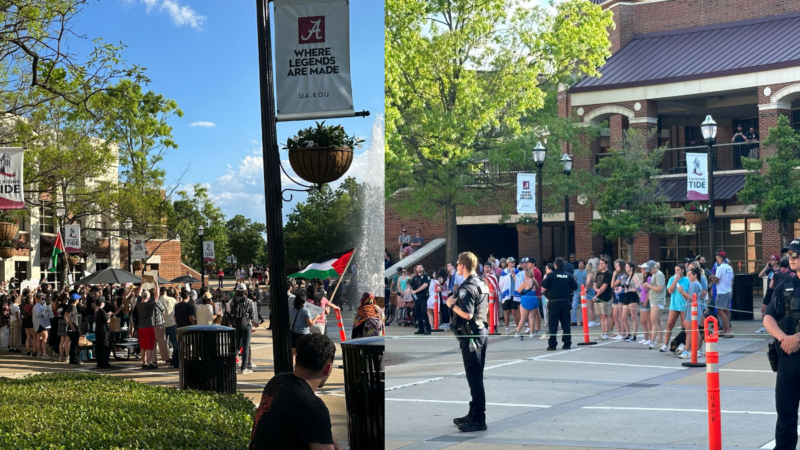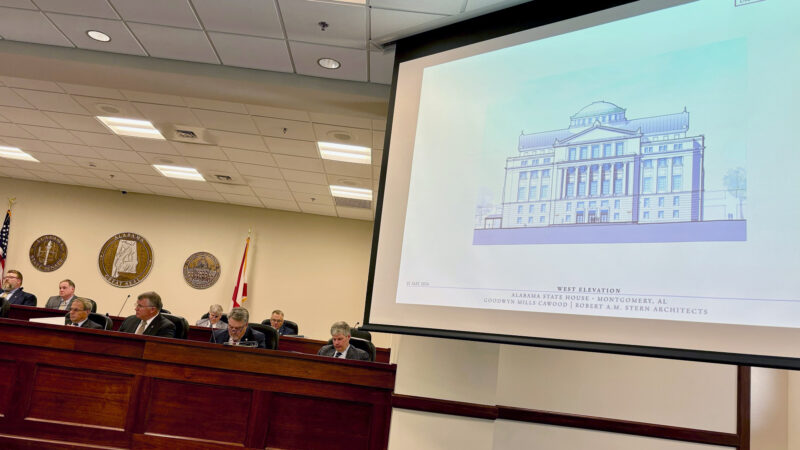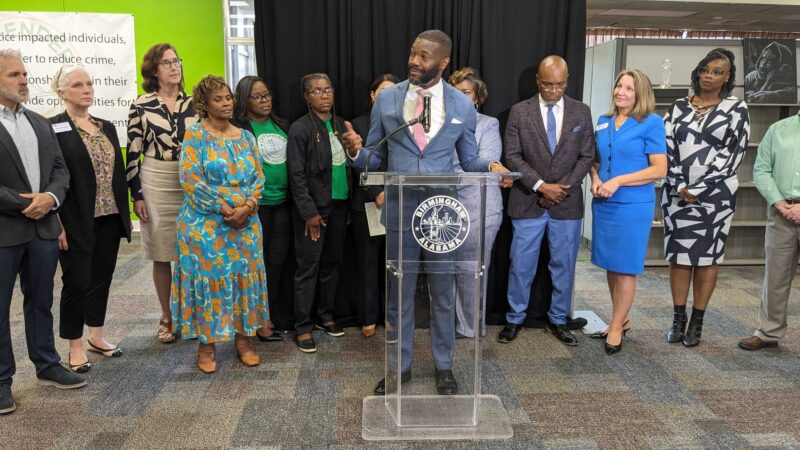Anti-DEI bill becomes law as lawmakers return for the second half of the session
Alabama lawmakers returned from spring break this week to take on several priorities for the Republican majority. Chief among them was a bill that would ban diversity, equity and inclusion (DEI) programs in schools, universities and government offices. Gov. Kay signed that bill into law on Wednesday.
“This has been debated at length really over the last two years and it finally got across the finish line this week,” said Todd Stacy, host of Capitol Journal on Alabama Public Television.
Stacy discussed the new law and other legislative action this week.
DEI ban
The new law, which goes into effect on Oct. 1, would prohibit universities, K-12 school systems and state agencies from sponsoring DEI programs, defined under the bill as classes, training, programs and events where attendance is based on a person’s race, sex, gender identity, ethnicity, national origin or sexual orientation.
The bill also says schools, universities and state agencies cannot require students, employees and contractors to attend a class or training session “that advocates for or requires assent” to what the bill lists as eight “divisive concepts.”
The list of banned concepts includes that “any individual should accept, acknowledge, affirm, or assent to a sense of guilt, complicity, or a need to apologize on the basis of his or her race, color, religion, sex, ethnicity, or national origin,” or that fault, blame or bias should be assigned to people based on race, religion, gender or national origin.
“Democrats vehemently opposed it, arguing that diversity, equity and inclusion should not only not be banned but should be encouraged,” Stacy said. “This has been a trend on the higher education level, trying to seek diversity, equity and inclusion, and you’re seeing pushback on that from Republicans nationwide.”
The bill also would attempt to prohibit transgender people on college campuses from using multiple occupancy restrooms that correspond with their current gender identity. It is unclear how the requirement would be enforced.
“Don’t Say Gay” law expansion
Teacher-led discussions on sexual orientation and gender identity, as well as displaying Pride flags in classrooms, would be banned in public schools under legislation advanced by the House Education Policy Committee Wednesday.
The measure is part of a wave of laws across the country that critics have dubbed “Don’t Say Gay.” It would expand current Alabama law, which prohibits the teaching in just elementary school, to all grades.
Committee approval came after a discussion in which the bill sponsor claimed it is needed to prevent students from being “indoctrinated,” while an opposed lawmaker said the state is essentially “bullying” some of its citizens. The bill now moves to the full Alabama House of Representatives.
“Extending this ban to the upper grades is a lot more effectual,” Stacy said. “You can see how in the lower grades such issues might not ever need to be brought up. You get into high school and it’s a little different.”
Birmingham-Southern College rescue
The House Ways and Means Committee on Wednesday advanced a bill intended to throw a $30 million dollar lifeline to financially-troubled Birmingham-Southern College (BSC). The bill makes changes to a loan program set up last year to assist distressed institutions. BSC applied for a loan under that program, but the loan was denied by state Treasurer Young Boozer.
College officials have said they need the $30 million dollar loan to keep the school afloat while they pursue other fundraising efforts.
“But lawmakers have a lot of questions about it. Some are saying even if Birmingham-Southern had this $30 million rescue fund that it still could close,” Stacy said.
Lawmakers added several conditions to the bill. Local governments, in this case the city of Birmingham and Jefferson County, would have to put up 15% of the loan amount from the state. Also, institutions under the program must be at least 100 years old. Finally, the bill requires BSC to meet certain enrollment and repayment benchmarks.
“There’s been a real downtick in applications to Birmingham-Southern, as you would expect with their future in doubt. So the legislature wants to make sure if they’re going to spend this $30 million, that it actually go to an institution that’s going to have students applying and being admitted.” Stacy said.
The bill now moves to the full House.
Includes reporting from the Associated Press
Gambling bill in doubt with three days left in the legislative session
Alabama lawmakers are coming down to the finish line for this year’s legislative session. Many bills await passage, but perhaps the biggest one up in the air is a lottery and gambling bill.
Pro-Palestinian demonstration draws counter-protest at University of Alabama
Students gathered demanding the school call for a permanent and immediate ceasefire and to push the school to sever ties with defense contractor Lockheed Martin.
A new Statehouse and related projects will cost about $400 million
The Alabama Legislative Council, a 20-member panel comprised of legislative leaders and their appointees, approved the construction of the new Statehouse last year. The panel was given an update on the project on Wednesday.
New pilot program will offer housing, resources to people leaving prison
The Birmingham Reentry Alliance will provide wrap around services to dozens of men and women adjusting to life after prison.
Alabama committee advances ban on LGBTQ+ pride flags in classrooms
The Senate Education Policy Committee voted 5-2 for the House-passed bill, putting the proposal in line for a possible final passage in the last four days of the legislative session.
A New Orleans garden paid hundreds of dollars in fees for a sewer that doesn’t exist
Galvez Garden owner Lissie Stewart has been fighting the New Orleans Sewerage and Water Board over inaccurate billing for years.








